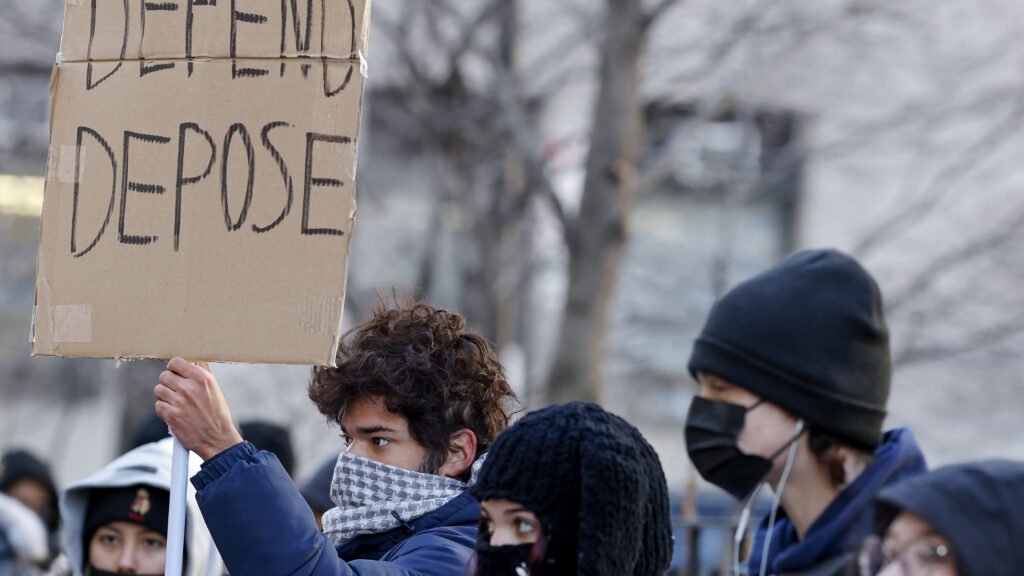The tragic killing of UnitedHealthcare’s CEO, Brian Thompson, has sparked a national conversation about the role of health insurance profits and coverage denials in the healthcare system. A recent poll conducted by NORC at the University of Chicago revealed that most Americans believe both the person who committed the murder and insurance companies share responsibility for Thompson’s death, although the majority still place the primary blame on the perpetrator.
The suspect charged with Thompson’s murder, Luigi Mangione, has been portrayed in some circles as a hero for his actions, which were allegedly motivated by grievances against insurance companies. Police found ammunition at the scene of the crime with the words “delay,” “deny,” and “depose” written on it, highlighting common criticisms of insurer tactics to avoid paying claims. Despite this, UnitedHealthcare has clarified that Mangione was not a client of the company.
The poll also revealed that about 7 in 10 adults believe that denials for health care coverage or the profits made by health insurance companies also bear responsibility for Thompson’s death. Younger Americans, in particular, see the murder as the result of a combination of factors rather than just the actions of one individual.
In addition to insurance companies, factors such as wealth or income inequality were also cited as contributing to Thompson’s death by about half of those surveyed. Patients and doctors often face challenges with coverage denials and other obstacles that hinder care, especially for serious illnesses like cancer and ALS. Critics of the insurance industry frequently question whether profits take precedence over patient well-being.
UnitedHealthcare reported over $16 billion in profit last year on $281 billion in revenue, emphasizing that a significant portion of their revenue goes towards covering medical claims. However, concerns about coverage denials and the prioritization of profits over patient care persist among consumers.
Younger Americans, in particular, are more likely to assign blame to insurance companies and profits for Thompson’s death, viewing them as equally responsible as the killer. This age group also expressed concerns about wealth inequality and media influence in shaping public perceptions of healthcare issues.
The poll also highlighted that about 3 in 10 Americans have faced challenges with their health insurance coverage in the last year, including difficulties finding in-network providers, denied claims, and issues with prior authorization. These struggles are more prevalent among Americans under 60, indicating ongoing frustrations with the complexities of the U.S. healthcare system.
Overall, the poll results underscore the need for ongoing discussions and potential reforms in the healthcare industry to address issues related to coverage denials, profit motives, and access to quality care. As the nation grapples with the aftermath of Thompson’s tragic death, the conversation around healthcare reform and patient advocacy continues to evolve.


